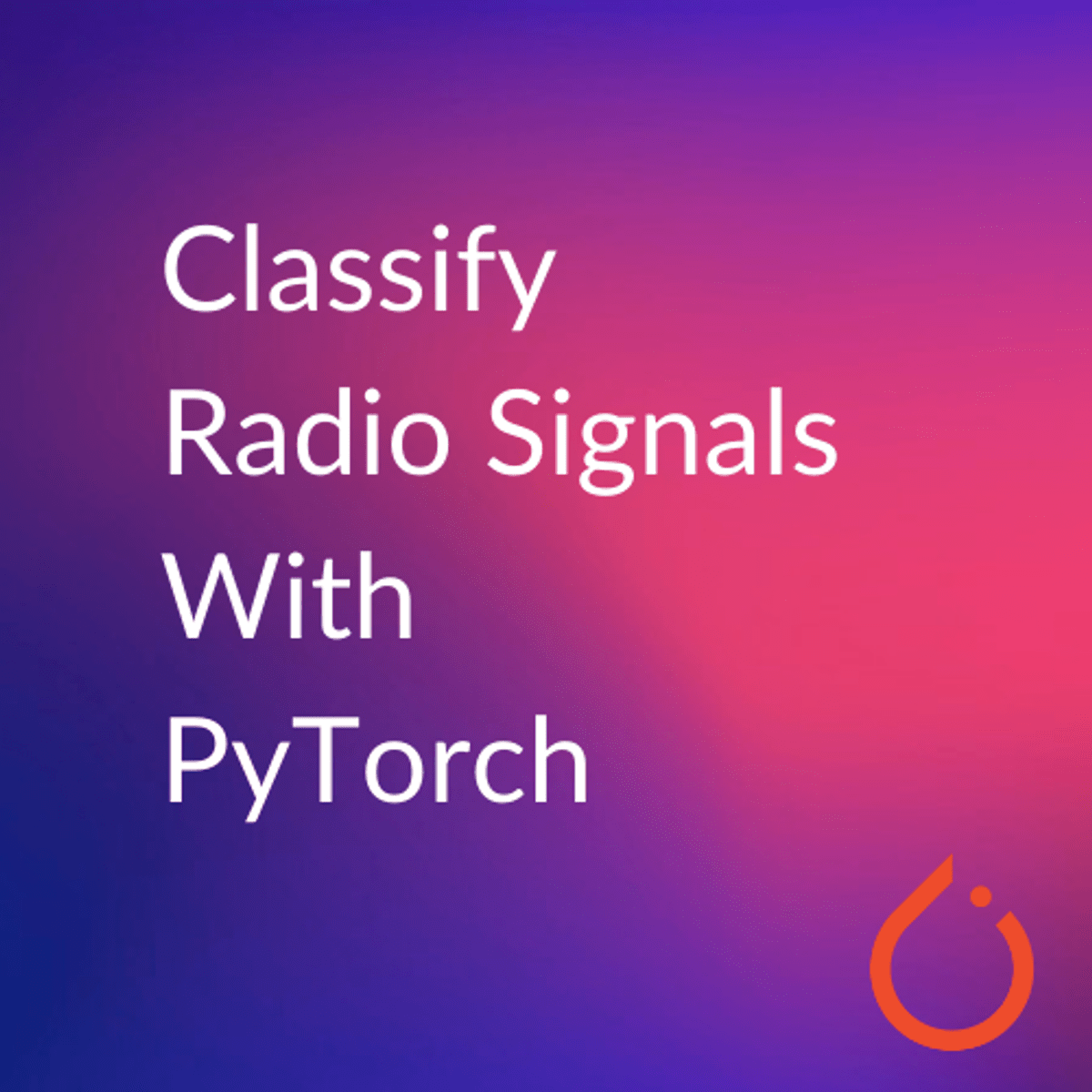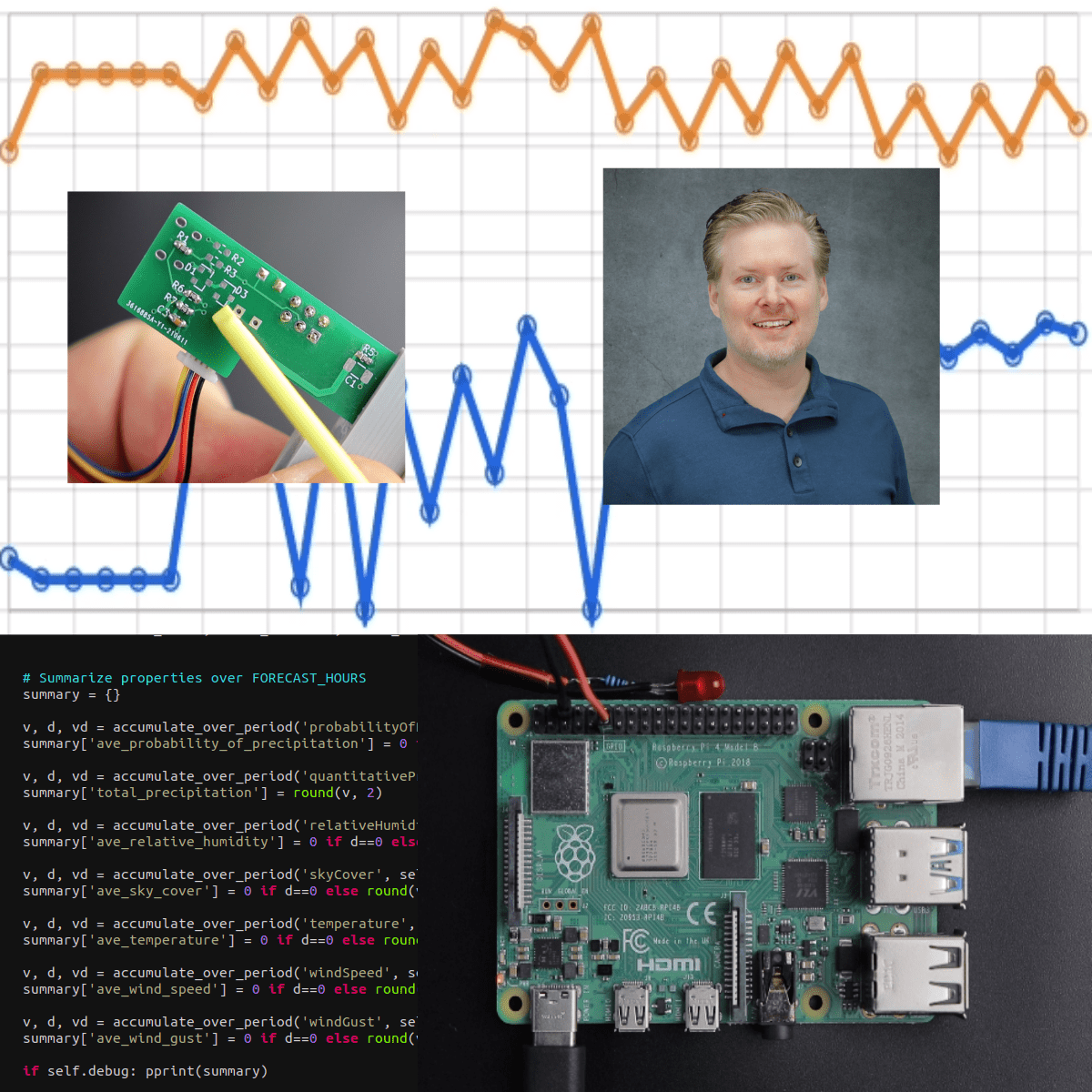Radio Frequency Engineer
Embarking on a Career as a Radio Frequency Engineer
Radio Frequency (RF) engineering is a specialized branch of electrical engineering that deals with devices and systems designed to operate in the radio frequency spectrum. This field encompasses the design, development, testing, and deployment of technologies that transmit and receive radio waves, including everything from your smartphone and Wi-Fi router to sophisticated satellite communication systems and military radar. In essence, RF engineers are the architects of the invisible world of wireless communication that underpins much of modern technology.
Working as an RF engineer can be incredibly engaging. You might find yourself at the forefront of innovation, developing components for the next generation of wireless networks like 5G and 6G, or designing antennas for spacecraft exploring distant planets. The field also offers the excitement of problem-solving, as RF engineers are constantly tackling challenges related to signal integrity, interference, and optimizing performance in diverse and often difficult environments. Furthermore, the demand for skilled RF engineers has been consistently growing, offering a promising career path in a multitude of industries.
Core Responsibilities of a Radio Frequency Engineer
The day-to-day life of an RF engineer is multifaceted, involving a blend of theoretical design, hands-on testing, and collaborative problem-solving. These professionals are responsible for the entire lifecycle of RF systems, from initial concept to deployment and maintenance. Their work ensures that the wireless technologies we rely on daily function seamlessly and efficiently.
Design and Testing of RF Circuits and Systems
A primary responsibility of RF engineers is the design of various RF components and systems. This includes amplifiers, filters, mixers, oscillators, and phase-locked loops (PLLs). They utilize specialized computer-aided design (CAD) software like Keysight ADS, ANSYS HFSS, and Microwave Office to model and simulate these circuits before they are physically built. Rigorous testing is then conducted using equipment such as spectrum analyzers and network analyzers to verify performance metrics like gain, noise figure, voltage standing wave ratio (VSWR), linearity, and phase noise.
This meticulous design and testing process is crucial for ensuring that RF systems meet stringent performance requirements and operate reliably in their intended applications, whether it's for consumer electronics, telecommunications infrastructure, or critical defense systems. The ability to analyze, design, test, and build electronic equipment operating from high-frequency (HF) through millimeter waves is a core competency.
Antenna Design, Signal Propagation, and Interference Mitigation
Antenna design is another critical area of RF engineering. Engineers in this domain focus on creating antennas that efficiently radiate and capture radio waves for specific applications and frequency bands. They must have a deep understanding of electromagnetic theory and how radio waves propagate through different mediums and interact with various materials and environments. This knowledge is essential for predicting signal coverage and quality.
A significant challenge in RF engineering is mitigating interference. In today's crowded radio spectrum, signals from various sources can interfere with each other, degrading performance. RF engineers develop and implement strategies to minimize such interference, ensuring clear and reliable communication. This might involve careful frequency planning, the use of specialized filtering techniques, or advanced signal processing algorithms.
For those interested in the foundational principles of antennas, several comprehensive texts are available. These books delve into the theory behind antenna operation and provide practical design guidance.
Collaboration with Cross-Functional Teams
RF engineers rarely work in isolation. They frequently collaborate with engineers from other disciplines, such as software engineers, hardware engineers, mechanical engineers, and systems engineers. This teamwork is essential for integrating RF systems into larger products and ensuring overall system compatibility and performance. For example, in the development of a new smartphone, RF engineers work closely with software teams to optimize cellular and Wi-Fi performance and with mechanical engineers to ensure antenna placement doesn't compromise signal quality.
Effective communication skills are therefore vital for RF engineers, enabling them to clearly articulate technical concepts and work effectively within a multidisciplinary team environment. They may also interact with project managers, technicians, and sometimes clients or regulatory bodies. The ability to explain complex RF concepts to non-specialists can be particularly valuable.
Formal Education Pathways
A strong educational foundation is typically required to embark on a career as an RF engineer. The highly technical nature of the work demands a deep understanding of physics, mathematics, and electronic principles. Most employers seek candidates with at least a bachelor's degree in a relevant engineering field.
Undergraduate Degrees: Electrical Engineering, Physics
The most common undergraduate degree for aspiring RF engineers is a Bachelor of Science in Electrical Engineering (BSEE). Electrical engineering programs provide a broad understanding of electronic circuits, electromagnetics, signal processing, and communication systems, all of which are fundamental to RF engineering. Within an electrical engineering curriculum, students can often choose elective courses that specialize in RF and microwave engineering, providing a more focused preparation for this career path.
A bachelor's degree in Physics can also serve as a pathway into RF engineering, particularly for roles that are more research-oriented or involve a deep understanding of electromagnetic theory and wave propagation. Students with a physics background may need to supplement their education with specific coursework or practical experience in electronics and circuit design to be competitive for some RF engineering positions.
For those starting their journey, foundational courses in electromagnetics are highly recommended. These courses build the essential understanding of electric and magnetic fields that underpin all RF technologies.
A solid understanding of basic circuit analysis is also crucial before diving into more specialized RF topics. Courses covering AC circuits provide the necessary groundwork.
Graduate Specializations (e.g., RF Systems, Electromagnetics)
While a bachelor's degree is often the minimum requirement, many RF engineers pursue graduate studies, such as a Master of Science (MS) or Doctor of Philosophy (PhD), to deepen their expertise and qualify for more advanced or specialized roles. Master's programs in electrical engineering frequently offer specializations in RF and microwave engineering, electromagnetics, wireless communications, or signal processing. These programs provide advanced coursework and often involve a research project or thesis, allowing students to delve into specific areas of interest. Some employers prefer or even require a master's degree for certain R&D positions.
Specialized knowledge in areas like RF systems design, electromagnetic compatibility (EMC), or specific communication technologies (like 5G or satellite systems) can make a candidate more attractive to employers in those sectors. For those aiming for cutting-edge research or academic positions, a PhD is typically necessary.
Advanced courses focusing on RF and microwave circuits provide the specialized knowledge needed for designing high-frequency systems.
Understanding the behavior of transistors at RF frequencies is also key. Courses on semiconductor devices, including MOSFETs and BJTs, are valuable.
PhD Research Areas (Antenna Design, Millimeter-Wave Technologies)
A PhD in electrical engineering with a research focus relevant to RF engineering opens doors to high-level research and development positions in industry, academia, and government labs. Common PhD research areas in RF engineering include advanced antenna design (such as smart antennas, phased arrays, and metamaterial antennas), millimeter-wave (mmWave) and terahertz (THz) technologies for ultra-high-speed communications and sensing, RF integrated circuits (RFICs) and monolithic microwave integrated circuits (MMICs), cognitive radio, and an_introduction_to_rf_power_amplifier_design_and_applications.
Researchers in these fields are pushing the boundaries of what's possible in wireless technology, contributing to innovations in areas like 6G communications, advanced radar systems, medical imaging, and radio astronomy. A PhD program typically involves several years of intensive research, culminating in a dissertation that presents original contributions to the field.
Delving into the intricacies of RF circuit design at an advanced level often requires specialized knowledge. Books dedicated to RFIC design can provide this depth.
Online Learning and Skill Development
For individuals looking to enter the field of RF engineering, supplement their existing education, or pivot from a different career, online learning offers a flexible and accessible pathway to acquire foundational knowledge and develop crucial skills. While RF engineering is a complex discipline that traditionally relies heavily on hands-on lab experience, online courses can be invaluable for understanding theoretical concepts, learning simulation tools, and even preparing for practical work. Many universities and professional organizations now offer a range of online courses and resources.
Platforms like OpenCourser can be instrumental in this journey, providing a vast catalog of courses from various providers. Learners can explore engineering courses and use features like course comparisons and summarized reviews to find suitable options. Remember, persistence and a structured approach are key to successful self-study or supplementary learning in such a technical field.
Feasibility of Self-Study for Foundational Concepts
Self-study can be a viable option for grasping many of the foundational concepts in RF engineering, especially when augmented by high-quality online courses and textbooks. Topics like basic electronics, AC circuit theory, an introduction to electromagnetism, and the fundamentals of signal processing can often be learned effectively through self-paced online modules. Many courses offer interactive simulations and problem sets that help reinforce understanding.
However, it is important to be realistic. RF engineering involves practical skills that are best honed in a laboratory setting with actual test equipment. While simulations are powerful, they cannot fully replicate the nuances of real-world measurements and troubleshooting. Therefore, individuals relying heavily on self-study should seek opportunities to gain practical experience, perhaps through personal projects, internships, or workshops if available.
Online courses can provide a solid introduction to RF design principles and communication systems, laying the groundwork for more advanced topics.
Key Topics to Prioritize (e.g., Microwave Engineering, MATLAB/Python for Simulations)
When pursuing online learning in RF engineering, prioritizing certain key topics can build a strong foundation. Microwave engineering is a core subject, covering the theory and techniques for designing circuits and systems at microwave frequencies. Understanding transmission line theory, Smith charts, S-parameters, and microwave components like couplers and filters is essential.
Proficiency in simulation software is crucial for modern RF design. While industry-standard tools like ADS and HFSS can be expensive and complex for beginners, learning the fundamentals of electromagnetic simulation and circuit analysis through more accessible means is beneficial. Furthermore, gaining skills in programming languages like MATLAB or Python is highly valuable. These languages are widely used for simulations, data analysis, and automating test procedures in RF engineering.
Understanding how communication systems work, including modulation and signal processing, is vital. Online courses can offer comprehensive overviews of these areas.
[course] Wireless Communications for Everybody [course] Analog Communication [course] Learn Analog Communication : From Basics to AdvanceFor those interested in telecommunication networks, especially the evolution towards 5G and 6G, dedicated courses can provide in-depth knowledge.
[course] 6G, 5G, 4G, 3G, 2G Telecom Technologies - Foundation [course] 4G Network Fundamentals [course] 5G Network FundamentalsFoundational books on communication systems engineering and wireless communications can significantly aid in understanding these complex topics.
[book] Communication Systems Engineering [book] Wireless Communications [topic] Radio CommunicationPortfolio Projects (Antenna Design, RF Circuit Simulations)
For those learning online or aiming for a career transition, building a portfolio of projects is an excellent way to demonstrate practical skills and understanding to potential employers. Even without access to a full RF lab, meaningful projects can be undertaken. For instance, one could design and simulate an antenna for a specific frequency band using open-source or student-version simulation software. Documenting the design process, simulation results, and performance analysis can create a compelling portfolio piece.
Other project ideas include simulating RF circuits like amplifiers or filters, analyzing their performance characteristics, or even building simple RF circuits using readily available components if feasible. For those with programming skills, projects involving the analysis of RF signal data or the development of simple simulation tools using Python or MATLAB can also be valuable. OpenCourser’s Learner's Guide may offer tips on how to structure self-learning and project work effectively.
Guided projects available online can provide hands-on experience in specific RF applications, such as classifying radio signals using machine learning techniques.
[course] Classify Radio Signals with PyTorchUnderstanding Phase Lock Loops (PLLs) is important for many RF systems. Specialized courses can offer deep insights into their design and theory.
[course] Phase Lock Loop System Design Theory and Principles RAHRF469Career Progression for Radio Frequency Engineers
The career path for an RF engineer typically involves a progression from entry-level roles focused on specific tasks to more senior positions with greater responsibility, technical leadership, and strategic oversight. Advancement often depends on a combination of experience, continued learning, demonstrated expertise, and sometimes further education or professional certifications. The field offers diverse opportunities across various industries, allowing for specialization and growth.
Entry-Level Roles (RF Test Engineer, Junior Design Engineer)
Graduates typically enter the field in roles such as RF Test Engineer or Junior RF Design Engineer. As an RF Test Engineer, responsibilities often include performing tests on RF components and systems, calibrating test equipment, collecting and analyzing data, and troubleshooting issues under the guidance of senior engineers. This role provides valuable hands-on experience with RF hardware and measurement techniques.
Junior RF Design Engineers usually work as part of a design team, assisting with specific aspects of RF circuit or system design. This might involve tasks like schematic capture, component selection, running simulations, and assisting with layout. These entry-level positions are crucial for building foundational skills and understanding the practical application of RF principles. Many companies offer on-the-job training and mentorship for new engineers.
Foundational knowledge of telecommunication networks and specific technologies like LTE are valuable for many entry-level RF roles, particularly in the telecom sector.
[course] Introduction to Telecommunication networks [course] Learn Basics of Telecommunication NetworksMid-Career Paths (Systems Engineer, Technical Lead)
With several years of experience, RF engineers can advance to roles like RF Systems Engineer or Technical Lead. An RF Systems Engineer typically takes a broader view, focusing on the architecture and integration of RF systems within larger products or networks. They are involved in defining system requirements, performing trade-off analyses, and ensuring that different RF subsystems work together harmoniously.
A Technical Lead position involves guiding a team of engineers on specific projects, making key technical decisions, and mentoring junior team members. This role requires not only strong technical expertise but also good leadership and project management skills. At this stage, engineers might also choose to specialize in a particular area, such as antenna design, RFIC design, or a specific application like radar or satellite communications.
Senior Roles (RF Architect, R&D Director)
Highly experienced RF engineers with a proven track record of innovation and leadership can progress to senior roles such as RF Architect or R&D Director. An RF Architect is typically responsible for the high-level design and strategic direction of RF technologies within an organization. They make critical decisions about technology roadmaps, platform development, and the adoption of new RF standards and techniques.
An R&D Director in RF engineering would lead research and development efforts, managing teams of scientists and engineers working on cutting-edge technologies. These roles often require a deep understanding of the industry landscape, emerging trends, and business considerations, in addition to exceptional technical expertise. An advanced degree, such as a PhD, is often beneficial or required for such high-level research and leadership positions.
For those looking at the design and management of entire RF systems, books on the subject can be very insightful.
Tools and Technologies in RF Engineering
RF engineering relies heavily on a specialized set of software tools for design and simulation, as well as sophisticated laboratory equipment for testing and validation. Staying abreast of the latest tools and technological advancements is crucial for RF engineers to remain effective and innovative in their roles. The field is continually evolving, with new techniques and instruments emerging to address the challenges of higher frequencies, wider bandwidths, and more complex systems.
Simulation Software (ANSYS HFSS, Keysight ADS)
Simulation software is an indispensable part of the RF design process. Tools like ANSYS HFSS (High Frequency Structure Simulator) and Keysight ADS (Advanced Design System) are industry standards used for electromagnetic simulation and circuit design. HFSS is often used for 3D electromagnetic field simulation, crucial for antenna design and analyzing signal integrity in complex structures. ADS provides a comprehensive suite for schematic capture, circuit simulation (including harmonic balance and transient analysis), layout, and system-level simulation.
Other popular simulation tools include Microwave Office, Genesys, and Sonnet. These tools allow engineers to model and predict the performance of RF circuits and systems before they are physically prototyped, saving time and cost. Proficiency in one or more of these software packages is a highly sought-after skill for RF engineers. For those starting, understanding the fundamentals of software-defined radio (SDR) can also be beneficial, as it's a growing area in RF communications.
Courses focusing on SDR and specific design tools can enhance practical skills.
[course] Designing RF Communication Systems Using SDRs with GNU Radio [course] PCB Design Course Using Eagle CAD in EnglishLab Equipment (Spectrum Analyzers, Network Analyzers)
Hands-on work in an RF laboratory is essential for validating designs and troubleshooting issues. Key pieces of lab equipment include spectrum analyzers, vector network analyzers (VNAs), signal generators, power meters, and oscilloscopes. A spectrum analyzer displays signal strength as it varies by frequency, allowing engineers to observe the spectral content of signals, identify interference, and measure signal distortion.
A VNA is used to characterize RF components and circuits by measuring their S-parameters (scattering parameters), which describe how RF signals are reflected and transmitted by the device under test. Signal generators produce various types of RF signals for testing receivers and other components. Power meters accurately measure RF power levels. High-speed oscilloscopes are used to view signal waveforms in the time domain. Familiarity with the operation and limitations of this equipment is critical.
Understanding specific components like Block Upconverters (BUCs) used in satellite communications can be learned through specialized, often shorter, courses.
[course] Introduction to Norsat BUCsFor a broader understanding of communication systems and high-speed signals, especially in the context of accessible platforms like Raspberry Pi, relevant courses can be very practical.
[course] Communications and High-Speed Signals with Raspberry PiEmerging Tools (AI-Driven RF Optimization)
The field of RF engineering is witnessing the emergence of new tools and methodologies, including the application of Artificial Intelligence (AI) and Machine Learning (ML). AI and ML algorithms are being explored for tasks such as RF spectrum sensing, dynamic spectrum sharing, optimizing network performance, predicting maintenance needs, and even assisting in the design of RF components like antennas. These technologies can analyze vast amounts of data to identify patterns and make real-time decisions, potentially leading to more efficient and adaptive RF systems.
Another trend is the increasing integration of RF functionalities into smaller and more complex System-on-Chip (SoC) and System-in-Package (SiP) solutions. This requires advanced design tools that can handle co-design of digital, analog, and RF circuits. As technologies like 5G and beyond push towards higher frequencies and wider bandwidths, the tools and techniques used by RF engineers will continue to evolve.
Industry Applications and Trends
RF engineering is a critical enabler for a vast array of modern technologies and industries. From the smartphones in our pockets to the satellites orbiting the Earth, RF technology is fundamental to how we communicate, navigate, and gather information. The field is dynamic, constantly evolving with new standards, applications, and technological advancements. Understanding current industry applications and future trends is essential for RF engineers and those considering a career in this domain.
5G/6G Deployment and its Impact on RF Design
The global rollout of 5G networks represents a significant driver of demand for RF engineering expertise. 5G technology promises significantly higher data rates, lower latency, and massive device connectivity, enabling new applications like autonomous vehicles, smart cities, and advanced IoT solutions. This leap in performance requires sophisticated RF design, including the use of higher frequency bands (millimeter waves), massive MIMO (Multiple Input, Multiple Output) antenna systems, and advanced beamforming techniques. RF engineers are instrumental in designing and optimizing the infrastructure for these networks.
Looking further ahead, research into 6G is already underway. 6G is expected to push a_guide_to_rf_circuit_design_for_communication_systems even further, potentially utilizing terahertz frequencies and offering capabilities like holographic communication and ubiquitous AI integration. These advancements will present new and exciting challenges for RF design, requiring innovation in materials, components, and system architectures. According to a report by World Economic Forum, the continued evolution of mobile technology will be a key factor in future economic development, highlighting the importance of RF engineering in this progression.
Courses on 5G technology and ultra-dense networks are highly relevant for understanding these modern communication systems.
[course] Ultra-dense networks for 5G and its evolution [course] 5G Lab for Service Based Architecture & SignalingSatellite Communication and Defense Applications
Satellite communication is another major area where RF engineering plays a pivotal role. Satellites are used for broadcasting, broadband internet access (especially in remote areas), navigation (GPS), weather forecasting, and scientific research. RF engineers design the communication payloads for satellites, including antennas, transponders, and ground station equipment, ensuring reliable links over vast distances, often in challenging space environments. The rise of Low Earth Orbit (LEO) satellite constellations for global internet coverage, such as SpaceX's Starlink, is creating new opportunities and challenges for RF engineers.
In the defense sector, RF engineering is critical for radar systems, electronic warfare (EW), secure communications, missile guidance, and intelligence gathering. EW systems, for example, involve detecting, deceiving, or jamming enemy radio signals, requiring highly sophisticated RF capabilities. The demand for advanced RF technologies in defense is consistently strong due to national security imperatives. Many companies, such as Lockheed Martin, actively recruit RF engineers for these critical roles.
Understanding specific communication technologies used in cellular networks is important. Books covering MIMO and LTE provide valuable insights.
Sustainability Challenges in RF Hardware Production
As the proliferation of wireless devices and infrastructure continues, the electronics industry, including RF hardware production, faces increasing scrutiny regarding its environmental impact. Sustainability challenges include the energy consumption of RF systems (particularly large base stations and data centers), the use of hazardous materials in component manufacturing, and the generation of electronic waste (e-waste) at the end of product lifecycles.
There is a growing trend towards developing more energy-efficient RF components and systems, such as "green" power amplifiers and more efficient network architectures. RF engineers are also exploring the use of more environmentally friendly materials and manufacturing processes. Furthermore, designing for durability, repairability, and recyclability is becoming increasingly important. Addressing these sustainability challenges will be a key focus for the RF engineering community in the coming years, aligning technological advancement with environmental responsibility.
Challenges in Radio Frequency Engineering
While a career in Radio Frequency (RF) engineering offers exciting opportunities for innovation and impact, it also comes with its unique set of technical and practical challenges. These hurdles require RF engineers to possess deep technical knowledge, strong problem-solving skills, and an ability to adapt to rapidly evolving technologies and demanding environments. Successfully navigating these challenges is a hallmark of a skilled RF professional.
Signal Interference in Dense Urban Environments
One of the most persistent challenges in RF engineering is managing signal interference, especially in dense urban environments. Cities are crowded with a multitude of wireless devices and systems operating across various frequency bands, leading to a complex and noisy RF environment. Signals can be blocked or reflected by buildings and other structures, leading to "dead zones" or multipath propagation, where signals arrive at the receiver via multiple paths, causing fading and distortion.
RF engineers must design systems that can operate reliably in these harsh conditions. This involves careful frequency planning to avoid co-channel and adjacent-channel interference, the use of advanced antenna techniques like beamforming to focus signals, and sophisticated signal processing algorithms to mitigate the effects of multipath and noise. As the number of wireless devices continues to grow with the expansion of IoT and 5G/6G, managing interference will remain a critical task.
Thermal Management in High-Power Systems
Many RF systems, particularly power amplifiers used in base stations, broadcast transmitters, and radar systems, generate significant amounts of heat. Managing this thermal load is a critical challenge because excessive heat can degrade performance, reduce reliability, and even lead to component failure. As RF systems become more compact and power densities increase, effective thermal management becomes even more crucial and complex.
RF engineers must consider thermal performance from the earliest stages of design. This involves selecting components with good thermal characteristics, designing efficient heat sinks and cooling mechanisms (which can range from passive air cooling to liquid cooling for very high-power applications), and using thermal simulation tools to predict and optimize temperature distributions. The interaction between RF performance and thermal behavior is often tightly coupled, requiring a multidisciplinary approach to design.
Regulatory Compliance (FCC, ITU Standards)
The radio frequency spectrum is a finite and carefully regulated resource. RF engineers must design and operate systems in compliance with a complex web of national and international regulations. In the United States, the Federal Communications Commission (FCC) sets rules for spectrum allocation, power limits, emissions, and equipment certification. Internationally, the International Telecommunication Union (ITU), a specialized agency of the United Nations, coordinates global spectrum use and develops technical standards to ensure interoperability and prevent harmful interference between different radio services.
Ensuring that RF devices meet these regulatory standards is a critical part of the design and testing process. This involves rigorous testing for parameters like out-of-band emissions, spurious emissions, and electromagnetic compatibility (EMC). Failure to comply with these regulations can result in fines, product recalls, and denial of market access. RF engineers must stay updated on evolving standards and work closely with compliance testing laboratories. For more information on FCC regulations, one can visit the FCC's official website.
Ethical and Safety Considerations
The pervasive nature of radio frequency technology in modern life brings with it important ethical and safety considerations that RF engineers must be mindful of. While RF technologies provide immense benefits, their development and deployment also raise questions about potential health impacts, responsible use, and environmental consequences. A conscientious approach to these issues is becoming increasingly integral to the practice of RF engineering.
Health Impacts of Prolonged RF Exposure
Concerns about the potential health effects of long-term exposure to radio frequency electromagnetic fields (EMFs) have been a subject of public discussion and scientific research for many years. RF energy is non-ionizing radiation, meaning it doesn't have enough energy to directly damage DNA in the way that ionizing radiation (like X-rays) can. However, high levels of RF exposure can cause heating of biological tissue, which is the basis for established safety guidelines.
Regulatory bodies worldwide, such as the FCC in the United States and the International Commission on Non-Ionizing Radiation Protection (ICNIRP), set exposure limits to protect the public from known adverse health effects. RF engineers are responsible for designing devices and systems that comply with these safety standards, ensuring that exposure levels remain well below these established thresholds. Ongoing research continues to investigate potential long-term, low-level exposure effects, and it's important for the engineering community to stay informed by reputable sources like the World Health Organization (WHO).
Ethical Use of RF in Surveillance/Military Tech
RF technology plays a significant role in surveillance and military applications, ranging from radar systems and signals intelligence (SIGINT) to remotely operated drones and communication jamming equipment. While these technologies are often vital for national security and defense, their use raises profound ethical questions about privacy, civilian impact in conflict zones, and the potential for misuse.
RF engineers involved in the design and development of such technologies may face ethical dilemmas. It is important for professionals in this field to consider the broader societal implications of their work and to operate within legal and ethical frameworks. Discussions around responsible innovation and the ethical governance of dual-use technologies (those with both civilian and military applications) are ongoing in engineering and policy circles.
Environmental Impact of RF Infrastructure
The widespread deployment of RF infrastructure, including cellular towers, broadcast antennas, and satellite ground stations, can have an environmental footprint. This includes the energy consumed by these installations, the materials used in their construction, and the visual impact on landscapes. Furthermore, the lifecycle of RF devices, from manufacturing to disposal, contributes to e-waste and resource depletion.
There is a growing emphasis on developing more sustainable RF technologies. This includes designing more energy-efficient transmitters and receivers, using environmentally friendly materials, and promoting the recycling and responsible disposal of electronic equipment. RF engineers can contribute by considering environmental factors throughout the design process, aiming for "green RF" solutions that minimize ecological impact while delivering the necessary performance.
Frequently Asked Questions
Navigating a career in Radio Frequency (RF) engineering often brings up several common questions, especially for those new to the field or considering a transition. Here are answers to some frequently asked questions that can provide further clarity.
What is the average salary for RF engineers?
The average salary for RF engineers can vary significantly based on factors such as experience level, geographic location, education (e.g., Bachelor's, Master's, PhD), specific skills, and the industry or company they work for. According to data from May 2025, Payscale reported an average salary of around $101,882. ZipRecruiter indicated an average annual pay of $117,680 as of May 2025. Salary.com reported a slightly lower average of $106,072, with a typical range between $98,744 and $115,052 as of May 2025. Another source, the SEG Career Center, stated an average of $97,529 per year.
Entry-level positions will generally be at the lower end of the scale, while senior engineers, architects, and R&D directors with extensive experience can command much higher salaries, potentially exceeding $142,000 to $167,500 annually for top earners. Locations with a high demand for tech talent, such as certain tech hubs in California or Colorado, may offer higher average salaries. For the most current and location-specific salary information, consulting resources like the U.S. Bureau of Labor Statistics (BLS) for electrical and electronics engineers can provide broader context, though it won't be specific to just RF engineers.
Can I transition from software engineering to RF engineering?
Transitioning from software engineering to RF engineering is possible, but it requires a significant commitment to learning a new and distinct set of skills. While software skills, particularly in areas like signal processing, embedded systems, or test automation, can be beneficial in RF engineering, the core knowledge base is quite different. RF engineering is deeply rooted in electrical engineering principles, electromagnetics, circuit theory, and hardware.
A software engineer looking to make this transition would likely need to pursue additional education, potentially a master's degree in electrical engineering with an RF specialization, or undertake intensive self-study and online courses focusing on foundational RF topics. Gaining hands-on experience with RF test equipment and simulation tools would also be crucial. It's a challenging but potentially rewarding path for those with a strong interest in the hardware aspects of wireless technology. Starting with foundational courses on electrical engineering can be a good first step.
Is RF engineering becoming obsolete with wireless advancements?
Quite the contrary. RF engineering is more critical than ever due to ongoing wireless advancements. Technologies like 5G, the upcoming 6G, Wi-Fi 6/7, the Internet of Things (IoT), satellite communications, and advanced radar systems all rely heavily on sophisticated RF engineering for their development and operation. As wireless systems push for higher frequencies, wider bandwidths, greater integration, and improved performance, the challenges and complexities for RF engineers increase.
The demand for skilled RF engineers who can design, test, and optimize these advanced systems remains strong and is likely to continue growing. While specific tasks or tools may evolve, the fundamental principles of RF engineering and the need for experts in this domain are enduring. The field is characterized by continuous innovation, not obsolescence.
Which industries hire the most RF engineers?
RF engineers are sought after in a diverse range of industries. The telecommunications sector is a major employer, with companies involved in developing cellular networks (like 5G and beyond), Wi-Fi systems, and other wireless communication infrastructure. The aerospace and defense industries also hire a significant number of RF engineers for work on satellite communications, radar, electronic warfare systems, and navigation systems.
Consumer electronics companies that design and manufacture smartphones, tablets, wearables, and other wireless devices are also key employers. Other industries include automotive (for vehicle-to-everything (V2X) communication and in-car wireless systems), medical (for MRI machines and wireless patient monitoring), semiconductor manufacturing (for RFIC design), and research and development institutions. The job outlook is generally positive across these sectors.
How important are programming skills in this field?
Programming skills are increasingly important for RF engineers. While not always the primary focus, proficiency in languages like Python or MATLAB is highly beneficial for automating tests, performing data analysis, running simulations, and developing control software for RF systems. C/C++ might be used for embedded systems programming related to RF hardware.
Engineers who can combine RF expertise with programming capabilities are often more versatile and efficient. For example, automating complex RF measurements or post-processing large datasets from simulations can save significant time and effort. As RF systems become more software-defined and incorporate AI/ML, programming skills will likely become even more integral to the role.
What are the key differences between RF and analog engineering?
RF engineering is a specialized subset of analog engineering. Analog engineering deals with continuous signals in general, across a wide range of frequencies. RF engineering specifically focuses on the high-frequency portion of the electromagnetic spectrum, typically from around 3 kHz to 300 GHz, where signals behave as electromagnetic waves.
While both disciplines share foundational principles of circuit theory, RF engineering involves unique considerations not always dominant at lower analog frequencies. These include transmission line effects, wave propagation, impedance matching at high frequencies, antenna design, and dealing with parasitic capacitances and inductances that become significant at RF. RF engineers use specialized tools and techniques, like S-parameters and Smith charts, that are tailored for high-frequency design and analysis. Essentially, all RF engineers are analog engineers, but not all analog engineers specialize in the distinct challenges and phenomena of the radio frequency domain.
This article aims to provide a comprehensive overview of the Radio Frequency Engineer career. We hope this information helps you evaluate whether this challenging and rewarding field aligns with your aspirations. As wireless technology continues to shape our world, the role of the RF engineer will remain crucial in driving innovation and connectivity.


























